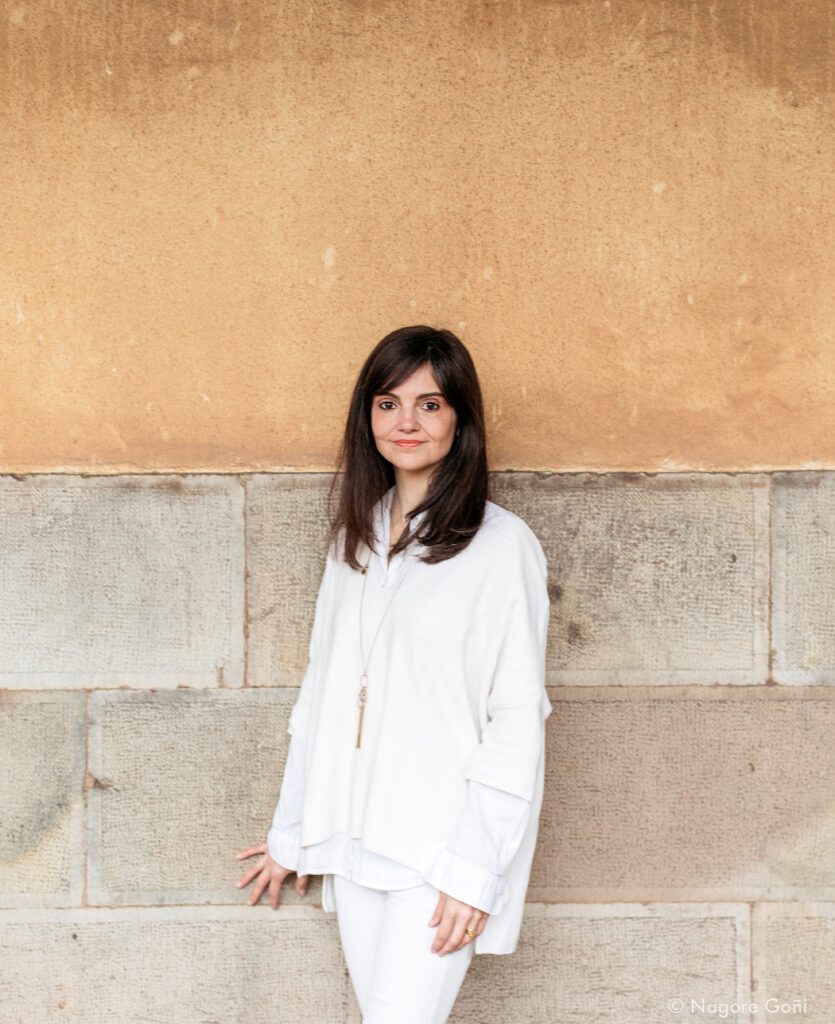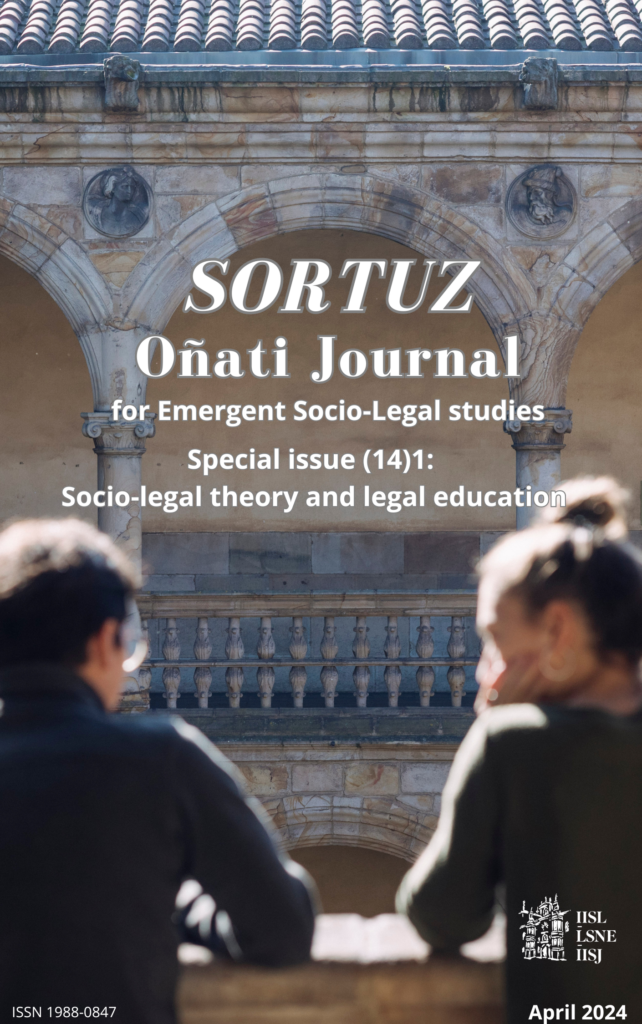Sortuz is an open access journal based in Spain published by the Oñati International Institute for the Sociology of Law Foundation. As part of our ‘Story behind the journal’ series, DOAJ spoke with the Managing Editor, Leire Kortabarria and Editorial team member Izabela Zonato.
Tell us about the Sortuz journal and your role.
Leire: Sortuz means ‘create’ or ‘creation’ in euskera, and it was created in 2007 by Oñati International Institute for the Sociology of Law, which is dedicated to research and education in sociology of law. The journal was created by two Master students, who thought the research from the institute and this field deserved to have a platform. The journal was originally created for the students and graduates from the Institute and was open access right from the start. In the beginning the journal was published by the Institute, but the Institute was not involved in managing and editing the journal.

Since the journal was created it has evolved through different stages, from years where it didn’t publish much at all to getting new life when the Institute took over the editor and managing roles of the journal. This was around four years ago, and the relaunch of the journal has been very successful. The Institute was really supportive in terms of taking on the journal fully, and we had three new graduates as editors, including Izabela. We publish twice a year, and we have a regular flow of publications. We’re also working on how to increase the visibility of the journal.
Izabela, how did you get involved with the journal as an editor?
Izabela: I have a very strong connection with the Institute, and did my master’s degree there. I’m from Brazil, and when I came back to Brazil I was thinking about how I could still contribute to the Institute. So, I wrote to Leire asking if there was a way I could help Sortuz or the other journal that the Institute manages. She told me I could join the editorial team of Sortuz, and this was almost three years ago.

Leire: Yes, she was the only one to volunteer for the role, the two others were invited. Izabela and the others have been great, and I really appreciate the work that they do because it isn’t a paid role, so they do it because they wish to contribute.
What motivates you to be involved with Sortuz?
Izabela: For me, I think knowledge should be shared. It motivates me to be involved because I can help contribute with sharing of knowledge through Sortuz, and I can help others share their knowledge.
Leire: I completely agree. For me as Managing Editor, I value that I can continue to work with our graduates and to offer them something more for their profile. Also, to help spread knowledge and to offer a safe environment to submit their first works.
What kind of publications do Sortuz publish?

Leire: As everything with the Institute, we aim to be international and to have a wide and diverse range of authors and readers. So, we welcome anything that falls within Sociology of Law, which is a small but diverse field. We published a Special Issue two years ago, “Race, Gender, Violence and Violation of Rights: Intersections in the 21st Century” to give space to the new lines of research. We welcome papers in four of our official languages: English, Spanish, Basque and French. We also publish papers in Portuguese, because there’s a large community of socio legal researchers in Brazil and in Portugal. We publish papers from all kinds of researchers, but especially encourage junior scholars, our students and our graduates to submit their papers to us. In general, we have a good mix of both senior and young scholars submitting their papers to us. The second Special Issue in Sortuz’s history was published on the 19 April: “Socio-legal theory and Legal education“.
How do you think the journal makes a difference in the subject field or the region?
Leire: I think what’s particular about Sortuz is that we offer a real peer review experience, but we also aim to educate or to provide researchers with first experiences in publishing. Because of this we have a more open and friendly profile, and we ask our reviewers to bear that in mind and to be constructive in their reviews. We aim to be inclusive, and to give everyone an opportunity to publish. At the same time, we have to aim for quality and cannot publish everything.
Izabela: We also allow authors to make corrections in their articles when necessary, and it helps authors think about the things that can be improved.
What are your thoughts on open access?
Leire: Our Institute is very much pro open access, and we have another journal that is also diamond open access. This practice is very ingrained into the Institute’s philosophy to offer and share knowledge immediately and without paywalls so that other researchers can benefit from that. It’s also good for authors, who can share their work immediately.
Izabela: I agree with what Leire said. I think it’s important for people to know what open access is, and I think Sortuz helps with increasing awareness about what open access is. Many are still unaware of what open access is.
Why do you think DOAJ is important to the scholarly community?
Leire: I think that DOAJ puts open access on the map, giving it a real presence and prestige. As Izabela said, there’s still some confusion about what open access is. Some think that open access cannot be equal to quality, which of course isn’t true. DOAJ does a great job maintaining the profile of open access and educating people. I think it’s also great that people sense that DOAJ is a friendly community – they can relate to the people who are behind DOAJ, and feel like they are researchers just like them. DOAJ isn’t a large company, but a friendly organisation.
Izabela: And just to add, I think it’s important the way that DOAJ organises the journals, it makes it easier to find the journals that are indexed.
What do you think DOAJ could do in the future to help journals such as Sortuz?
Leire: Keep doing what you do and being so approachable. After reaching out to you about the journal stories, we were so positively surprised by the quick and positive response. Keep being present for your community, keep educating people and keep showing how diverse and good quality open access is – and how it serves the world of knowledge and science.
If you were to give one piece of advice to someone managing a journal, what would it be?
Leire: It’s obviously important to have an organisation or someone who can support you. Voluntary work is very valuable, but can often not be sustainable, so it’s really important to have support.
Izabela: Don’t work alone! Without Leire, Sortuz would not work! Also, keep in mind what the focus of the journal is.
This story is a part of our series about journals indexed in DOAJ, which digs into the history of selected journals, their views on open access and their motivation for and experience of getting indexed in DOAJ. Each story is based on an interview with a representative of the selected journal.

